Known as the “last secret place south of the Yangtze River,” Songyang County in Lishui, Zhejiang is made up of more than 100 villages, 77 of which are currently recognized by the state as protected traditional villages.
Among them is Songzhuang (松庄村), with roughly 600 residents, one for each of the villages’ 600 years-worth of history.

Image by Sophie Steiner/That's

Image by Sophie Steiner/That's
The town is a smattering of timeworn houses, with traditional wooden structures, ancestral halls, and community temples – connected to nearby villages through thousand-year-old preserved nature trails that follow brooks, cutting through bamboo forests, tea fields and peach groves.

Image by Sophie Steiner/That's
Like all Songyang villages, the entrance is marked by a historic fengshui tree, one that flowers in spring, blooms green in summer, turns auburn in fall and starts anew in winter.

Image by Sophie Steiner/That's
Arguably the town’s most famous draw, the iconic century-old stone arch bridge has been featured in movies and National Geographic on numerous occasions, drawing in history buffs and photographers alike.

Image by Sophie Steiner/That's
The village itself is cut in two, separated by a narrow stream that passes through it in the shape of a curving S. Here, villagers wash anything from laundry to vegetables, most of which is grown within walking distance.
Pastoral views of locals balancing loads across a shoulder yoke, picking tea, cooking on outdoor earthen-ware stoves, and chopping firewood are like scenes from an ancient Chinese poem.
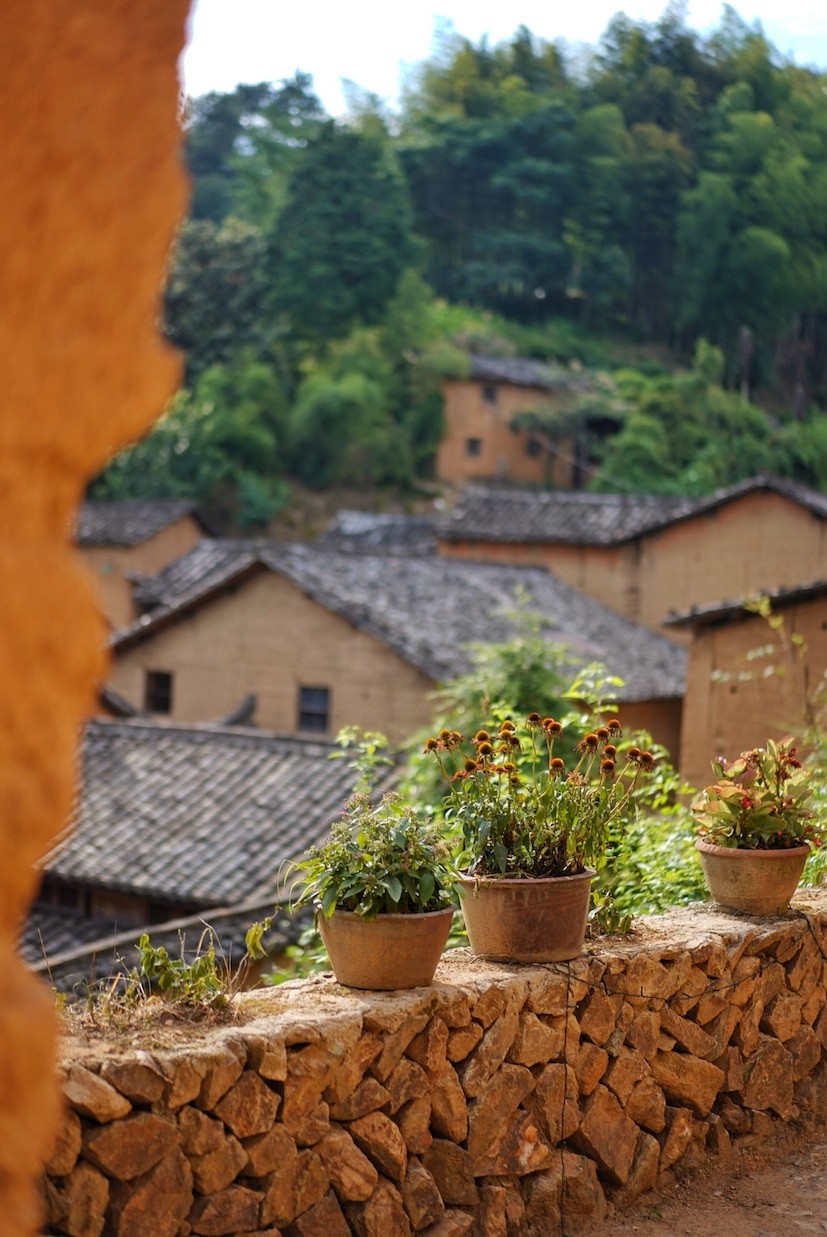
Image by Sophie Steiner/That's
While the rest of China careens forward at an exponential pace, Songzhuang and its counterpart Zhejiang villages remain bucolic – frozen in time – enjoying a slower pace of life that hasn’t changed much in the last century.

Image by Sophie Steiner/That's
Like Songzhuang, many of these villages only gained popularity in the last five years – largely owing to Chinese social media.
Nowadays, holiday weekends and festivals see at least 2,000 visitors, creating opportunities for villagers to open small shops, restaurants or guesthouses, thus putting Songzhuang on the map.
Taoye Boutique Hotel
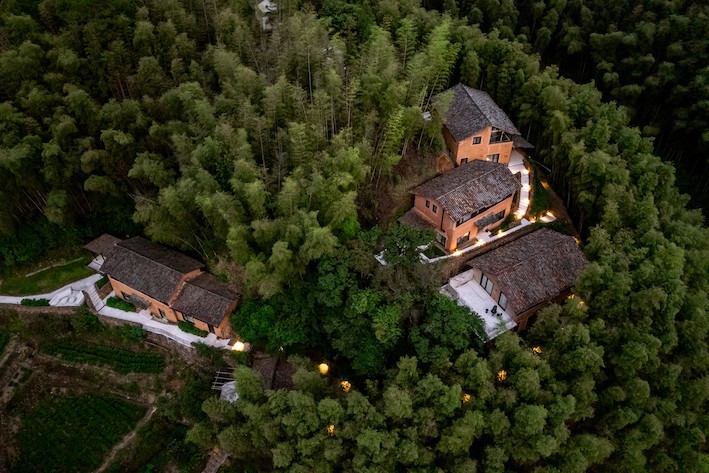
Image courtesy of Graeme Kennedy
Taoye Boutique Hotel’s origin story dates back to owners Peidy and Jacky’s first trip to Songyang in 2017.
Here, Peidy fell in love with the charming townships, flowing rivers, and relaxing lifestyle of the Sandu and Sidu Townships of Songyang.
More than anything, she loved the peach harvesting season.
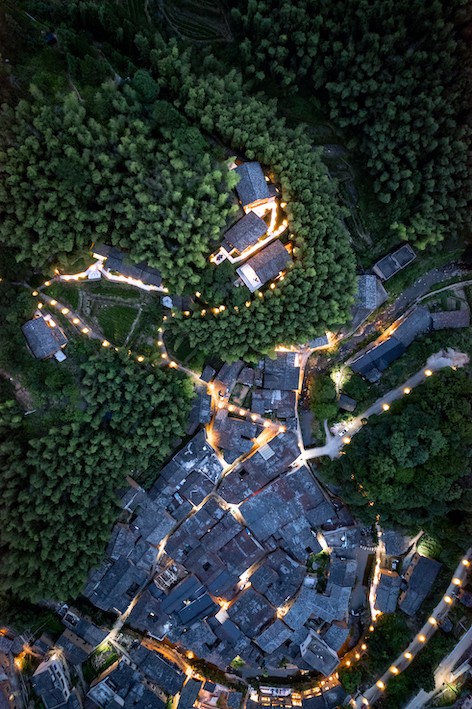
Image courtesy of Graeme Kennedy
As crates of peaches were being sold for just a few renminbi, she decided to connect farmers to friends and family back in the city, selling and shipping the peaches, all while helping the villagers gain more exposure and profits.
These peaches, coupled with her love for the region and yearning to share that sentiment with others, became the hotel’s namesake – with Tao (桃) coming from peaches (桃子) and Ye (野) meaning wild, open countryside.
Design & Layout
Designed by Lü Xiaohui (吕晓辉) of Tongji University – one of the designers behind naked Castle in Moganshan – Taoye’s exterior preserves the ancient village’s appearance, while its interior provides a contemporary contrast, a juxtaposition between old and new, rustic and modern.

Image courtesy of Graeme Kennedy
Taoye is spread across 10 buildings, encompassing 16 guest rooms, meeting rooms, a café and restaurant with an outdoor terrace and full bar, a book shop, art galleries, an onsite co-working space, and handicraft rooms sprinkled throughout the village.
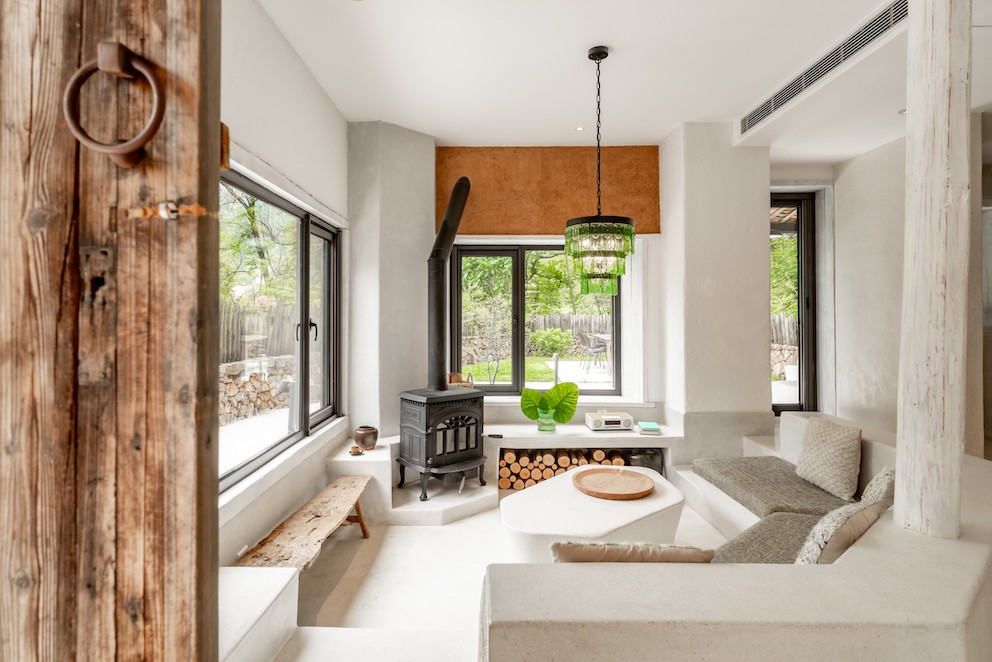
Image courtesy of Graeme Kennedy
Some guestrooms are next to the creek, while others overlook the bamboo forest or tea fields, each providing an immersive experience into the everyday lives of the villagers.

Image courtesy of Graeme Kennedy
Each room is equipped with luxury bedding, air-conditioning, floor heating, Apelles Apothecary toiletries, yoga mats and light free weights, complimentary face masks, fruits, snacks and beverages.

Image courtesy of Graeme Kennedy
By combining both old and new elements, Taoye is able to find a sustainable route forward that honors and values the past while providing for its future.
Dining
Dining at Taoye is elevated country style cooking.
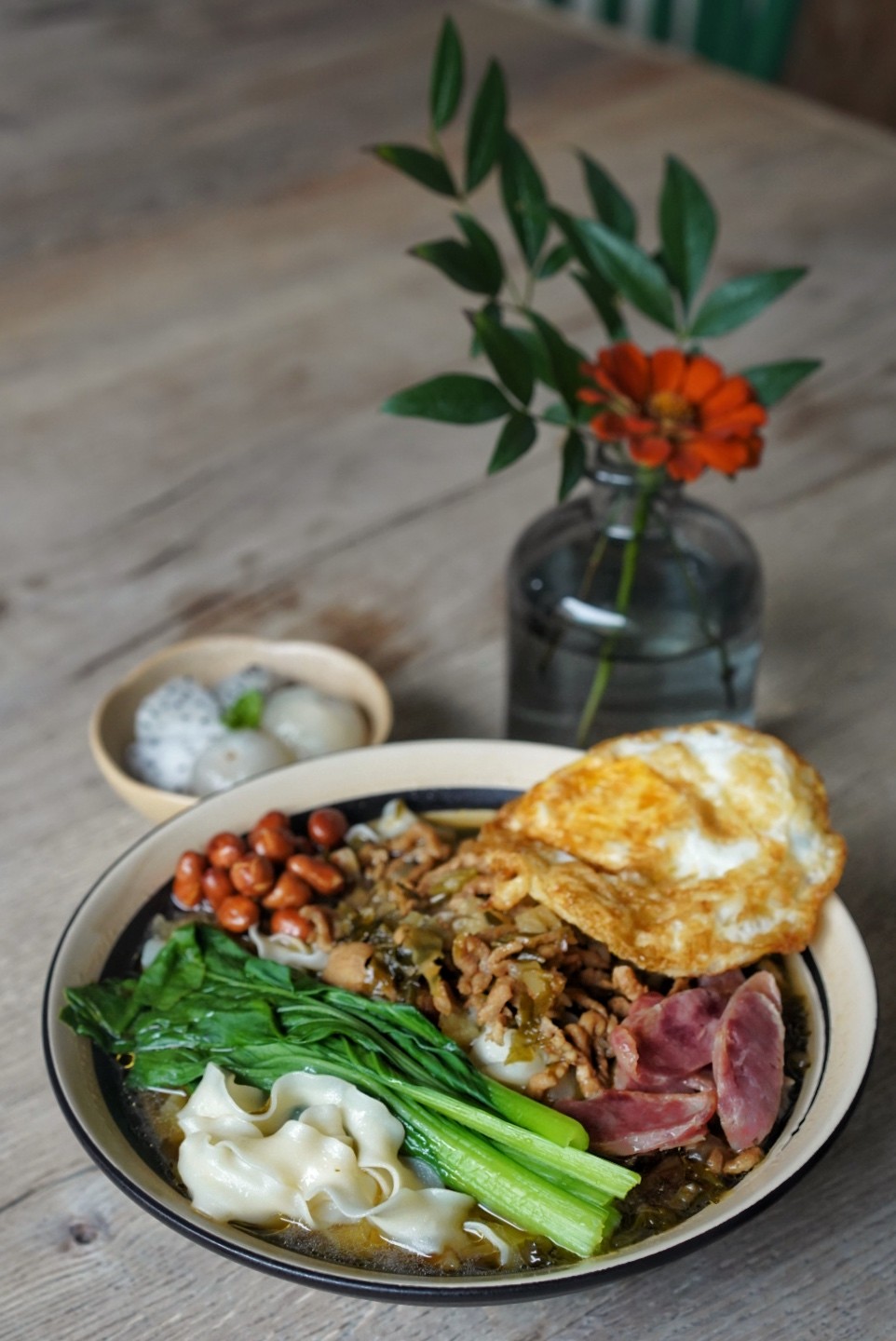
Image by Sophie Steiner/That's
Think freshly grown veggie hotpot sets, stewed pork belly and dried bamboo, sautéed tofu puffs with seasonal vegetables, stir fried preserved larou pork and peppers, fried eggs with local meigancai fermented veggies, plus fried rice and noodle soups with homemade pickles.

Image by Sophie Steiner/That's
What To Do
Aside from providing travel information for nearby villages, Taoye also puts a strong emphasis on the interaction between urban and rural lifestyles.

Image courtesy of Graeme Kennedy
Throughout the year, Taoye offers visitors the opportunity to partake in tailored experiences like bamboo forest yoga, open-air movies, weekend bazaars, art installation unveilings and concerts.
There are also food-related activities like French Michelin star chef popups, local tea-infused cocktail events by Japanese bartenders, and riverside afternoon tea sets.
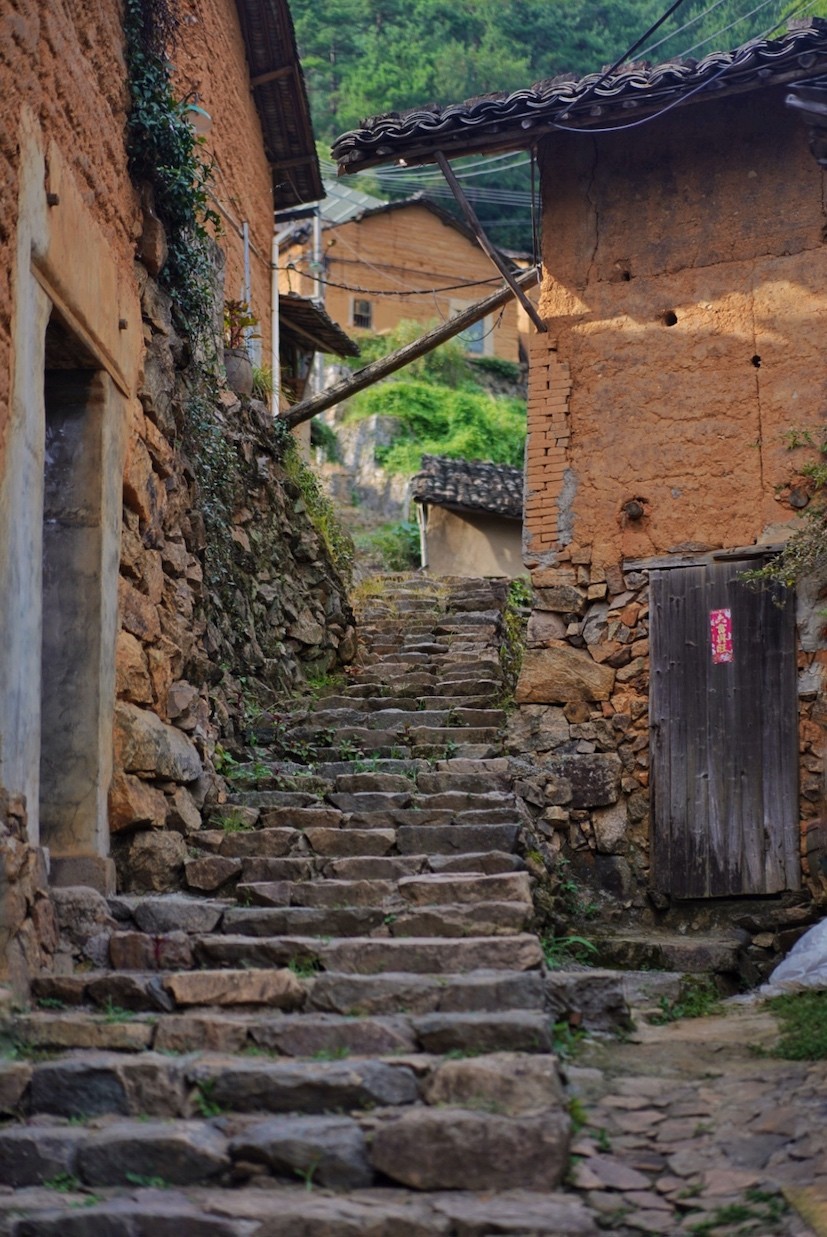
Image by Sophie Steiner/That's
Outside of pre-organized events, guests can go river tracing or trek to the nearby villages of Houwan (后湾村) Youtian (酉田村), Maoyuan (毛源村), and the internet-famous Yangjiatang (杨家堂村); go bike riding through the Damushan Tea Fields – a 4A tourist site; or walk around the Double Tongshan Glass Walkway – another 4A tourist site.

Image by Sophie Steiner/That's

Image by Sophie Steiner/That's
You can also go wild fruit and vegetable picking; visit the Yanqing Temple Pagoda, the Huang Family Mansion Woodcarving Museum, a tofu workshop, a brown sugar factory, or the Shimenwei Covered Bridge; and stroll along Nanzhen Old Street (南真老街) – a historic winding street in Songyang County Town dating back to the Qing Dynasty.

Image by Sophie Steiner/That's
The hotel officially opened its doors to the public on January 1, 2020, but as the COVID story goes, the rest is history.
Now, with borders open and unrestricted domestic and international travel in full force, Taoye is ready to provide the exact juxtaposition to city noise – allowing guests to tune out the chaos of the 9-9-6, go-go-go, mega city sensory overload.
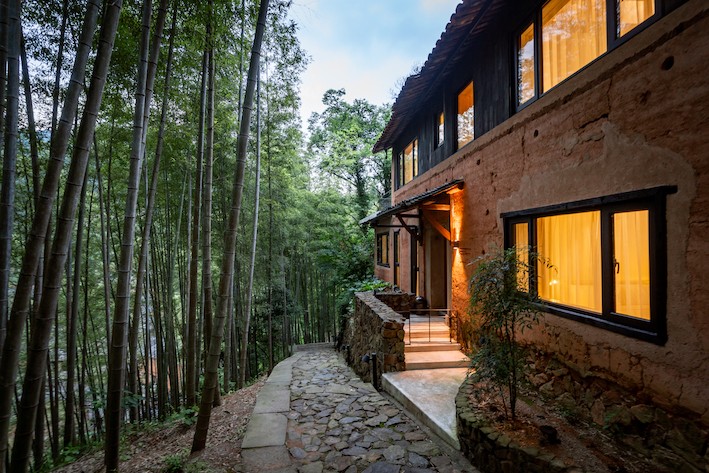
Image courtesy of Graeme Kennedy
How to Get There
The most efficient way to get to Taoye is via high-speed train to to Lishui (丽水). For visitors coming from Shanghai Hongqiao Railway Station, the trip takes 2.5-3 hours and costs RMB177.50 for second class seats, with 13 trains running each day departing between the hours of 6.20am and 7pm.
From Lishui station, you can pre-arrange a driver through Taoye that will take you straight to the village in 1.5-2 hours for RMB230-280 per car.
Getting Around
Taoye is also able to arrange a driver for the day for RMB600 per car for nearby Songyang exploring.
Another option is to drive yourself, which gives you flexibility to visit other nearby towns and sites, but do be aware that many of the country roads are narrow, winding, and not in the best condition.
Most villages, including Songzhuang, offer free parking at the village entrance.
That’s Readers Exclusive Packages
Rooms prices regularly range from RMB1,200 for a bamboo forest or courtyard facing room for two people to RMB4,600 for an entire family suite with a courtyard, kitchen, dining room, living room, and two bedrooms for four people.
But, Taoye is offering an exclusive villa package for all of China's That’s readers that includes:
Two Nights Stay in a Private Villa for four adults for just RMB7,288* (original price RMB10,552) that includes:
Two days of breakfast
Two days of dinner (one Songyang specialties, one BBQ)**
To purchase this package, click here.
*This promotion can only be used for Sunday-Thursday, excluding national holidays
**Additional adults can be added for RMB400, children under 12 for RMB200
How To Book
To learn more about Taoye Boutique Hotel, add the Taoye WeChat account by scanning the QR code below:

And follow them on Instagram @taoyeboutiquehotel
[Cover image by Sophie Steiner/That's]
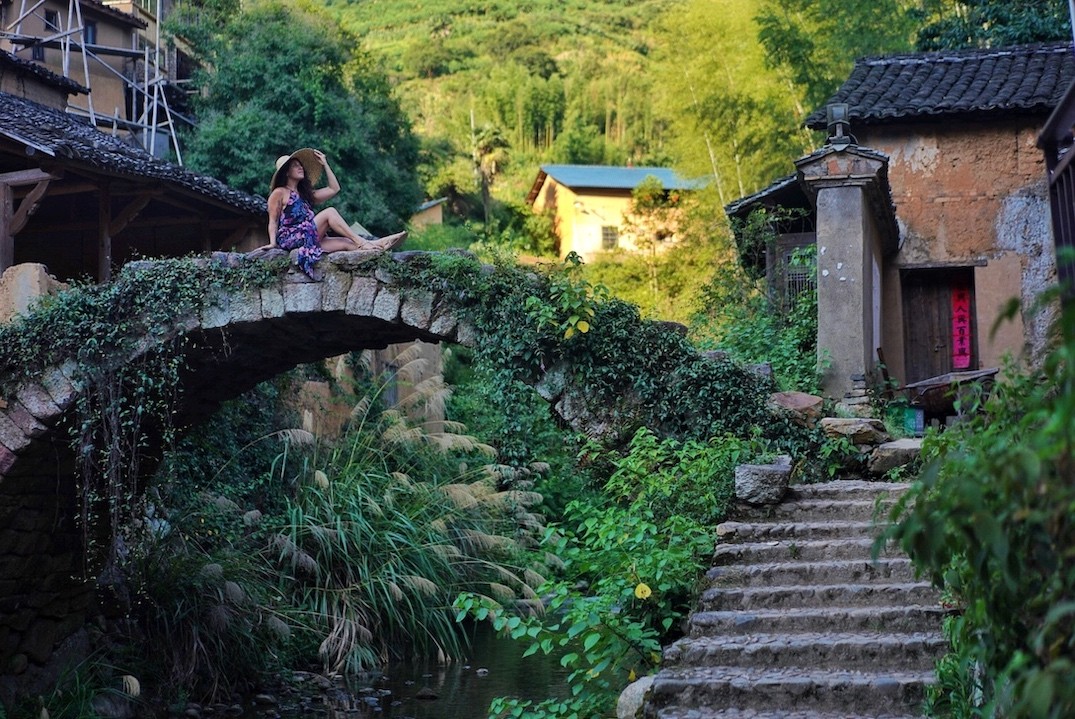




















0 User Comments